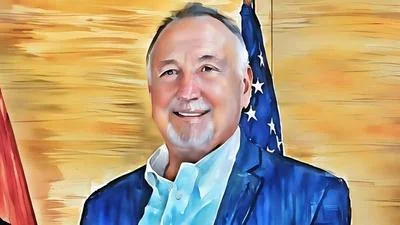Toll roads, government mandates, and new technology have stirred debate in Texas. For Terri Hall, founder and director of Texans Uniting for Reform and Freedom (TURF), it’s a fight to preserve freedom for auto owners and affordability on the road.
Hall launched TURF, a nonpartisan grassroots group, in 2005 after discovering plans to convert a San Antonio freeway into a toll road. She built a movement that has halted dozens of toll projects and encouraged reforms at the state and federal level.
“They were going to turn a whole network of our highways into toll roads of San Antonio,” Hall says. “That kind of became the ground zero for all of the toll projects that Rick Perry was trying to do. And it wasn’t just any ordinary toll road. These were going to be privatized toll roads.”
She says those projects were a form of corporate welfare. “When the government teams up with big corporations, it’s usually a bad deal for the taxpayers. It’s basically just public money for private profits.”
Hall says that toll pricing schemes also punish drivers. “It’s a monopoly. There may be alternate routes, but they’re not the same as an interstate highway. She says when some people divert, “the cities around there were trying to make it so you could have $95 tickets if you cut through the neighborhoods to avoid the toll roads.”
She has also fought efforts to lower speed limits and add cameras. “One of the bills that keeps coming back has been a bill to lower the speed limits all the way down to 25mph in anything they name an urban district,” she says. “It takes away the speed study, takes away any engineering or traffic study to justify lowering the speed limit.”
Hall is against new federal technology mandates on autos. For example, the 2021 infrastructure law includes a requirement for “advanced impaired driving technology.” She says this gives the government the power “to passively monitor every person in their vehicle to see if there could be impairment detected.” If impairment is detected, “they can cut power to your car or cease operation of your car.”
A draft rule indicates the system could include driver-facing cameras, breath detection, and lane monitoring, according to Hall. “All of those things would be coalesced together to create a profile,” which she fears would be used to create profiles on every driver.
She says that cars already contain hundreds of computer chips, making them vulnerable to hacking or government misuse. “The kill switch is dangerous. We don’t want it in our cars,” she says. The statute “needs to be repealed–no question,” Hall says.
Affordability is part of her concern. “We have got to make driving affordable again. One of the reasons it has become unaffordable is because of government intervention.” Electric vehicle mandates, she says, have distorted the market. “They basically saturated the market with cars that nobody wanted to buy. And in order to offset the losses … that’s when you started to see the price of regular gas powered cars go through the roof.”
Hall says there needs to be “low-tech freedom cars.” “We’re tired of insurance companies and big government determining what goes in our car and how we are allowed to drive. Automakers need to start catching up with the time it is in America. We’re done with nanny state cars.”









